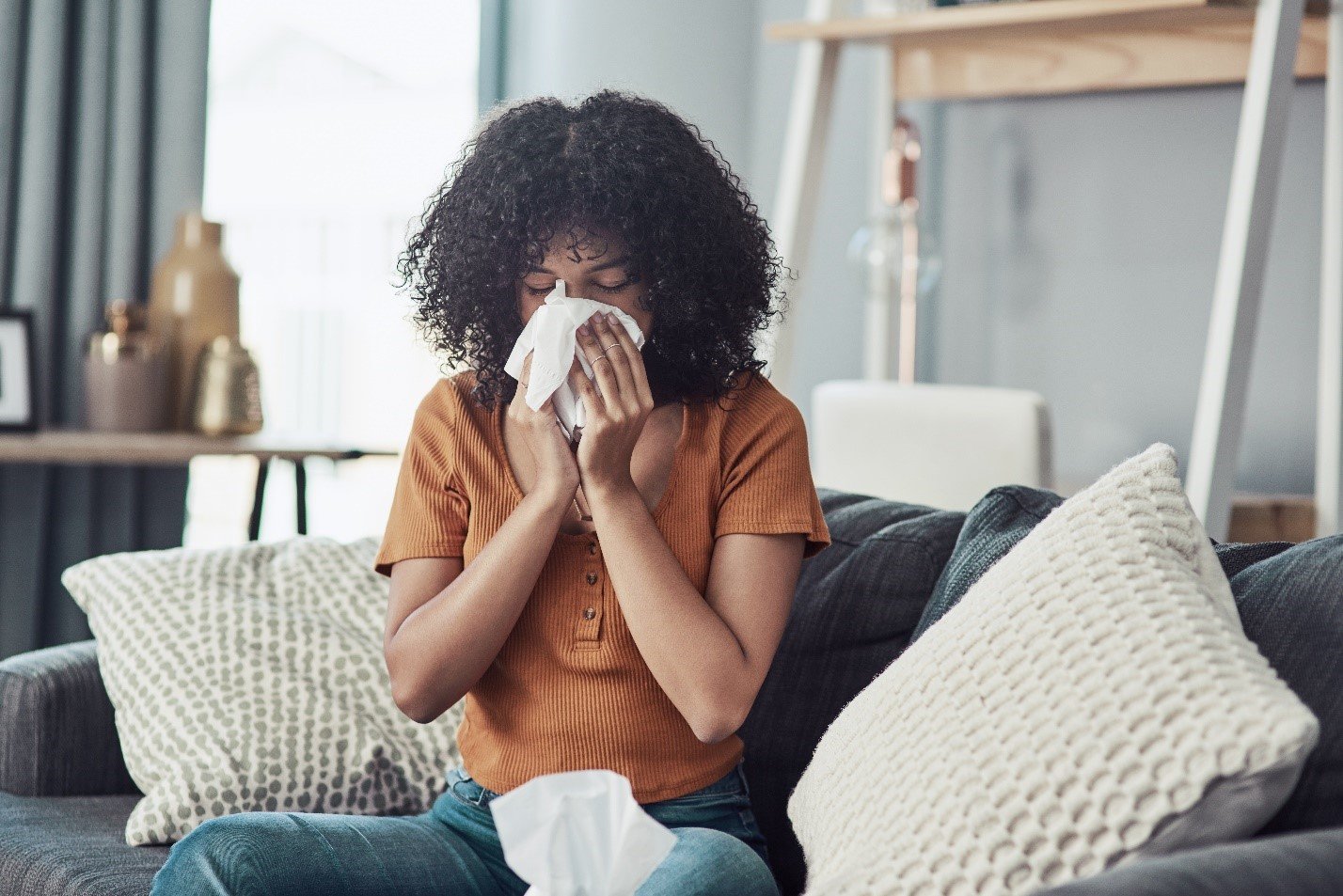How Is Aspergillosis Treated
Treatment options include oral corticosteroids, antifungal medications, and surgery.
- Oral corticosteroid drugs: Solid or liquid oral medications may be prescribed to treat allergic bronchopulmonary aspergillosis. These drugs reduce inflammation and prevent respiratory symptoms, such as wheezing and coughing, from getting worse. Some of the most commonly used drugs are prednisone, prednisolone, and methylprednisolone.
- Antifungal drugs: These medications are generally used to treat invasive pulmonary aspergillosis. Voriconazole is currently the drug of choice because it causes fewer side effects and appears to be more effective than other medications. Amphotericin B or itraconazole are also effective in treating infection. Caspofungin is sometimes used in cases where the infection is resistant to the other antifungals. Antifungal drugs are sometimes used along with oral corticosteroids when treating ABPA. Antifungals can cause serious side effects, such as kidney and liver damage.
- Surgery: Surgery may be necessary in cases when aspergillomas are present and cause serious problems, such as excessive bleeding. Antifungal medications are usually not effective against aspergillomas, so surgery is recommended. Embolization may be an option to block blood flow to the artery supplying blood to the lung cavity where the fungus ball is located. This will stop the bleeding, but it may recur later.
Mold Toxicity Is Also An Issue And It Is Considered A Chronic Inflammatory Response
An acute and chronic, systemic inflammatory response acquired following exposure to the interior environment of a water-damaged building with resident toxigenic organisms, including, but not limited to fungi, bacteria, actinomycetes, and Mycobacterium serve as inflammogens! Inflammogens keep your body in a state of inflammation.
Signs Of A Mold Illness
You May Like: How To Clean Mold From Ceiling
D Get In Touch With A Mold Inspection Specialist
If youve noticed black mold symptoms in toddlers attending your center or in teachers and caregivers, call a mold inspection and testing expert immediately. They will collect mold spores from affected areas around your childcare center and send them off for identification. A mold inspection will provide you with all the information you need to move ahead with the remediation efforts. You may also want them totest for additional VOCs in your childcare facility and home, to be sure that the environment is safe.
Also Check: How To Clean Mold From Leather
Timing Can Be A Factor

Seasonal allergies are caused by pollen and tend to start around late-February and last until the end of summer. Even allergies to ragweed should resolve by fall, around mid-October. If your allergy symptoms occur year-round or after pollen season is over, you may instead be having a reaction to mold.
Even if your symptoms occur during the spring and summer, pay attention to when theyre worst. If you experience symptoms after hanging out outside or when your windows are open, theyre probably due to pollen. If you experience problems when spending time indoors especially in the bathroom, kitchen, laundry room or basement theyre probably due to mold.
The only way to find out for sure is to visit an allergist, who can confirm the source of your symptoms.
Read Also: How To Fix Moldy Bathroom Ceiling
Treating Fever & Allergies
If a bacterial infection is the cause of your fever, a doctor will prescribe antibiotics to eliminate symptoms. A virus will usually disappear on its own, within a week or two.
If you have sinusitis, a cold, the flu, or COVID-19, your doctor will recommend staying home, resting, hydrating, taking over-the-counter medications, using decongestants, and placing warm compresses on the sinuses.
If allergies are the root of your symptoms, there are many treatment options. Your doctor will work with you to prescribe a treatment plan based on your symptoms and specific allergens. Treatment may include:
What Causes Mold Allergy
Molds produce spores. Allergies happen when your immune system is very sensitive to outside substances, such as mold spores. Your body produces antibodies against the mold spores. As youre repeatedly exposed to the mold spores over time, your body sees the mold spores as something to be destroyed and your immune system creates bigger reactions to protect you.
Its also possible to allergic to fungi in food, like mushrooms or fermented foods. This type of allergy generally causes local symptoms in the mouth and can cause rashes or even affect breathing.
Don’t Miss: Skin Rash From Mold
How Do Doctors Diagnose Mold Allergy
To diagnose an allergy to mold or fungi, the doctor will take a complete medical history. If they suspect a mold allergy, the doctor often will do skin tests or allergen specific IgE blood tests. Extracts of different types of fungi may be used to scratch or prick the skin. If there is no reaction, then you probably dont have an allergy. The doctor uses the patient’s medical history, the skin testing results and the physical exam to diagnose a mold allergy.
What Is A Mold Allergy
If you have an allergy that occurs over several seasons, you may be allergic to the spores of molds or other fungi. Molds live everywhere. Upsetting a mold source can send the spores into the air.
Mold and mildew are fungi. They are different from plants or animals in how they reproduce and grow. The seeds, called spores, travel through the air. Some spores spread in dry, windy weather. Others spread with the fog or dew when humidity is high.
Inhaling the spores causes allergic reactions in some people. Allergic symptoms from fungus spores are most common from July to early fall. But fungi grow in many places, both indoors and outside, so allergic reactions can occur year round.
Although there are many types of molds, only a few dozen cause allergic reactions. Many molds grow on rotting logs and fallen leaves, in compost piles and on grasses and grains. Unlike pollens, molds do not die with the first killing frost. Most outdoor molds become inactive during the winter. In the spring they grow on plants killed by the cold. Indoors, fungi grow in damp areas. They can often be found in the bathroom, kitchen or basement.
Don’t Miss: How To Get Rid Of Bathroom Ceiling Mold
Mold Allergies Asthma And Other Respiratory Symptoms
Whether you already experience allergy symptoms or not, touching or inhaling mold spores may cause you to become allergic to mold. If you are sensitized to mold as an allergen, exposure may cause a range of allergy symptoms, including sneezing, stuffy or runny nose, and eye, nose and throat irritation, according to the CDC. However, you do not need to be sensitized to mold for it to cause medical symptoms.
Exposure to mold and damp indoor environments has been linked to a wide range of health effects. According to the Institute of Medicine , both mold and damp indoor environments have been found to cause coughing, wheezing and other respiratory tract symptoms in otherwise healthy individuals. Those with asthma may experience more severe asthma symptoms when exposed to mold or indoor dampness, including tightness, swelling and mucus in the airways. The CDC also notes that workplace exposure to mold in damp buildings has been associated with new-onset asthma.
Q: How To Know If Mold Is Making You Sick
A: Mold is one of the most common concerns of illness in homes, but often isnt the culprit. If you suspect that you or someone else has been exposed to mold, call your doctor immediately. The symptoms of mold exposure can mimic allergic reactions, include coughing, wheezing, shortness of breath, chest tightness, nausea, vomiting, diarrhea, headaches, fatigue, skin rashes, eye irritation, and nosebleeds.
Recommended Reading: How To Kill Mold In A Basement
Loss Of Smell Without Congestion: Likely Covid
While the loss of sense of smell is not as consistent with the delta variant as it was with the original strain, Steven said, it could still be a helpful differentiating factor.
If someone isn’t terribly congested, but loses their sense of smell, it would not be due to allergies, he said.
“People will tell you they lose their sense of smell with allergies, but that’s because their nose is really congested,” he said in a previous Journal Sentinel interview.
With allergies, the loss of smell is a result of air being blocked from getting to the receptors for the sense of smell in the nose, he said.
Watery Or Irritated Eyes

When allergens are present, the body releases histamines as part of its immune response. This histamine release is what causes the eyes to water excessively when exposed to toxins from mold.
This reaction from histamine may be the bodys way of flushing out allergens and toxins. It can serve as a warning to you that your environment may contain dangerous black mold.
Read Also: How To Clean Mildew From Leather
What Are The Different Types Of Mold Allergy
While there are many different types of molds, only few dozen can cause allergic reactions like alternaria, aspergillus, cladosporium and penicillium. These allergy-triggering molds can be found outdoors as well as indoors. These molds can grow on,
- Rotten logs
Outdoor mold allergy may be experienced in summer and fall
Indoor mold allergy, on the other hand, can be experienced year-round.
Get Help From A Doctor For Both Fevers And Allergies
If your fever doesnt break within three days, or it climbs to a high-grade fever, you need to seek medical attention.
With allergies, you should consult a doctor if the symptoms youre experiencing arent related to a diagnosis.
In both cases, you can speak to a doctor from the comfort of your home with the help of Carefree MD.
For just $17.95/month, you can speak to a state-licensed physician with a phone or computer, get prescriptions sent to your local pharmacy when medically necessary, and receive personalized advice on treatment options.
Talk to a doctor about your fever or allergies when you sign up for a Carefree MD membership today!
The Carefree MD blog is not meant to be a substitute for professional medical advice, diagnosis, or treatment. The text and pictures within the content are intended for information purposes only. Readers should consult with a licensed doctor or healthcare professional before seeking treatment.The Carefree MD Card is not insurance and Carefree MD is not an insurance provider
Don’t Miss: How To Clean Bathroom Ceiling Mold
Signs Of Mold Exposure And Recommended Treatments
Just a little bit of mold hiding in crawl spaces or lurking in closets can make you miserable. The cleanest home can harbor enough fungal growth to cause a variety of health issues.
When airborne spores circulate through the house, youre exposed to microbial volatile organic compounds and potent mycotoxins. Its important to recognize the signs of mold allergies, know how to treat mold exposure symptoms and eliminate the source of this threat to your health.
How To Treat Allergy Symptoms
To alleviate bothersome allergy symptoms, Steven suggested an over-the-counter, non-drowsy allergy medication, which he previously told the Journal Sentinel “work much better, they last longer and they don’t impair performance when operating machinery and stuff like that,” Steven said in a previous Journal Sentinel interview.
Nasal steroid sprays can also help and are available over the counter as well, he said. He has a video on how to properly use those on the “Patient Resources” tab on his website, myaasc.com.
If issues persist, such as, being too stuffy to breathe through your nose at night or getting sinus infections multiple times a year, he recommends seeing a doctor or allergist.
“It drives me nuts the amount of suffering people put up with before going to see the doctor,” he said in a previous interview. “They get a mechanic to look at their car, but they try to treat their medical conditions themselves. You just end up wasting a lot of money and doing needless suffering.”
Also Check: Bathroom Ceiling Mould
Is It Seasonal Allergies Or Mold Allergies
If youre one of the 20% of people who experience seasonal allergies , youre no stranger to the itchy, watery eyes, congestion, runny nose and scratchy throat that occur in the spring and summer. But its possible your symptoms arent actually due to pollen, but instead mold. Mold allergies cause very similar symptoms to hay fever, but they tend to attack at different times. Its important to uncover the source of your symptoms in order to seek treatment.
What Do I Do If I’m Unsure
If you’re on the fence, get tested for COVID-19, Steven said.
If someone’s symptoms are mild, he recommends that they get the polymerase chain reaction test as opposed to the rapid antigen.
If someone is symptomatic, rapid antigen tests do a “pretty decent job” of detecting COVID-19, he said. But if someone’s symptoms are minimal, this test is not as good as the PCR, he said.
Don’t Miss: How To Remove Bathroom Ceiling Mold
What Are The Symptoms Of A Mold Allergy
The symptoms of mold allergy are very similar to the symptoms of other allergies, such as sneezing, itching, runny nose, congestion and dry, scaling skin.
- Outdoor molds may cause allergy symptoms in summer and fall
- Indoor molds may cause allergy symptoms year-round
Mold spores get into your nose and cause hay fever symptoms. They also can reach the lungs and trigger asthma. A chemical released by allergy cells in the nose and or lungs causes the symptoms. Sometimes the reaction happens right away. Sometimes a mold allergy can cause delayed symptoms, leading to nasal congestion or worsening asthma over time. Symptoms often get worse in a damp or moldy room like a basement. This may mean you have a mold allergy.
Rarely, some patients can have a more serious illness called allergic bronchopulmonary aspergillosis. In this condition, there is both an allergic and an inflammatory response to the mold. Symptoms may include severe wheezing, coughing and shortness of breath, much like asthma.
How Common Is Mold Allergy

According to some statistics, about 1 in 5 people in the U.S. have been diagnosed with environmental allergies. About two-thirds of people with asthma also have environmental allergies. Many days of work are lost and more than 50% of people who have such allergies consider them to play a part in their quality of life.
Read Also: Get Rid Of Mold On Bathroom Ceiling
Who Is At Risk For Mold Toxicity
While anyone can become ill from exposure to mold and its mycotoxins, some are more susceptible than others.
People who already have allergies or asthma can be more severely affected by mold toxicity than those who do not have allergies.
Also, people who are already ill, have immune suppression, or who have respiratory illnesses are more likely to have noticeable and intense symptoms resulting from mold exposure.
Symptoms of mold toxicity are relatively persistent and should not be ignored.
What Are The Risk Factors Associated With Mold Allergy
These are number of factors that can lead to a development or aggravation of mold allergy symptoms
- Having a family history of allergies
- Working in an environment where you are exposed to mold
- Living in a house with high humidity
- Working or living in a building thats been exposed to high moisture
- Living in a house with poor ventilation
Don’t Miss: Cleaning Moldy Leather
What Steps Can One Take For Mold Allergy Prevention
There is no mold allergy cure. The best way to stay allergy free is by avoiding mold spores. Although it is difficult to outrun mold, you can stick to the following home remedies to prevent your exposure to them
- Eliminate sources of dampness around you, especially in the basement
- Use a dehumidifier. Mold thrives in humidity, so it is best to keep the humidity levels below 50% at home
- Use an air conditioner, preferably one with a high efficiency particulate air filter attachment
- Change filters on your furnace and air conditioner regularly
- Ensure proper ventilation in all the bathrooms
- Dont carpet bathrooms and basements
- Keep organic plant containers clean and dry
- Toss or recycle old newspapers and books
When you are venturing outside, ensure your follow the following steps to avoid mold
- Avoid going through places that can have high mold counts, such as a pile of dead leaves, damp areas, greenhouses and uncut fields among others
- Wear a dust mask when youre out on a trek or going backpacking in the jungle
- Keep your backyard and surroundings clean and dry as they are breeding grounds for mold
- Avoid going out at night, especially during rainy season
Can Allergies Cause A Fever
November 1, 2021 Written by: Michael Menachof Categories: Allergy
Dr. Menachof, MD, has specialized in conditions around the head, throat, ear, nose, neck and face for over 20 years, and was the first to bring sublingual allergy drops to Colorado in 2005. He has been recognized as a Fellow by multiple academies, named one of Americas Top Facial Plastic Surgeons continually since 2003 and is featured in multiple national publications.
Experiencing a fever with your allergies? Learn more about what causes this and how you can get your allergies treated in Denver.
The short answer is no allergies do not directly cause a fever. A high temperature is a sign that your body is fighting a bacterial or viral infection. Sometimes allergies can lead to a sinus infection, and a fever is a symptom of a sinus infection, so allergies can indirectly cause a fever.
Recommended Reading: How To Get Rid Of Airborne Mold
